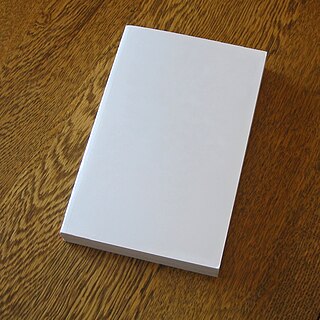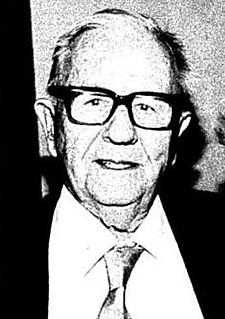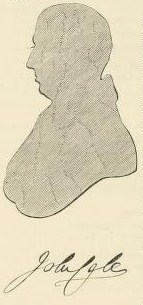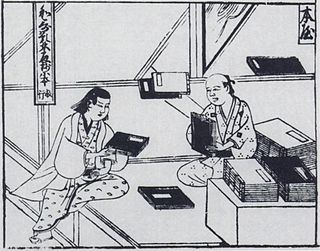Related Research Articles

A paperback, also known as a softcover or softback, is a type of book characterized by a thick paper or paperboard cover, and often held together with glue rather than stitches or staples. In contrast, hardcover or hardback books are bound with cardboard covered with cloth, plastic or leather. The pages on the inside are made of paper.

Book collecting is the collecting of books, including seeking, locating, acquiring, organizing, cataloging, displaying, storing, and maintaining whatever books are of interest to a given collector. The love of books is bibliophilia, and someone who loves to read, admire, and collect books is called a bibliophile.

Bernard Quaritch, full name Bernard Alexander Christian Quaritch, was a German-born British bookseller and collector.

Bookselling is the commercial trading of books which is the retail and distribution end of the publishing process. People who engage in bookselling are called booksellers, bookpeople, bookmen, or bookwomen. The founding of libraries in 300 BC stimulated the energies of the Athenian booksellers.
The antiquarian book trade in the United States is an aspect of book collecting and publishing. The term antiquarian, in general, refers to antiquities and collectible items usually considered old and rare, usually in reference to books, but is not limited to books. The word antiquarian could also be used to describe a person who collects rare books or other antique items.
Whatman plc is a Cytiva brand specialising in laboratory filtration products and separation technologies.

George Ayres Leavitt was the son of a Massachusetts bookbinder who founded several of New York's earliest publishing firms. George Leavitt subsequently founded his own publishing company, Leavitt & Allen, but it failed during a financial panic that swept the nation during the American Civil War. Leavitt later tried to reestablish himself as both publisher and fine arts auctioneers, founding one of the first upscale auction houses, and eventually retiring from the book industry entirely.

Maggs Bros. Ltd. is one of the longest-established antiquarian booksellers in the world, established in 1853 by Uriah Maggs, born c. 1828 in Midsomer Norton, Somerset. All four of Uriah's sons eventually joined the business, taking over on his retirement in 1894.
The Bookseller is a British magazine reporting news on the publishing industry. Philip Jones is editor-in-chief of the weekly print edition of the magazine and the website. The magazine is home to the Bookseller/Diagram Prize for Oddest Title of the Year, a humorous award given annually to the book with the oddest title. The award is organised by The Bookseller's diarist, Horace Bent, and had been administered in recent years by the former deputy editor, Joel Rickett, and former charts editor, Philip Stone. We Love This Book is its quarterly sister consumer website and email newsletter.
Weiser Antiquarian Books is the oldest occult bookstore in the United States. It specialises in books on Aleister Crowley and his circle, magic, mysticism, eastern religions and alternative spirituality. Its earlier New York incarnation, The Weiser Bookshop, was described by Leslie A. Shepherd as "perhaps the most famous occult bookstore in the U.S."
Leona Rostenberg was an independent scholar and rare books dealer born in New York, New York.
The Independent Online Booksellers Association (IOBA) is a trade association of independent used and rare booksellers who sell online.
John George Cochrane (1781–1852) was a Scottish editor and bibliographer, also a librarian, with a general knowledge of literary history.

The following outline is provided as an overview of and topical guide to books:

Ronald Vere Tooley was an English map dealer, an authority on early maps and cartographers, a noted compiler of catalogues on maps, cartography and antiquarian books, author of Maps and Map-makers, and founder of the Map Collectors' Circle which published a series of monographs on historical cartography in the period 1963-1975. He is considered the founder of the antiquarian map trade.

John Cole (1792–1848) was an English bookseller, publisher and antiquary, of Northampton, Lincoln and Scarborough, North Yorkshire. He was born on 3 Oct. 1792 at Weston Favell in Northamptonshire. He is remarkable as having compiled over 100 publications but whether as bookseller, lecturer, 'general factor,' or school-master, Cole was invariably unsuccessful. As self-trained and industrious antiquary, he appears to have been utterly unsuited for the cares of a business life and he was constantly on the move and died in poverty. Cole generally printed only few copies of his books which make them rare. As his books contain much out-of-the-way information, they are sought after by collectors. He was in the habit of binding up extra plates and additional manuscript matter in his private copies. A silhouette portrait of Cole and facsimile of his handwriting are given in the Yorkshire Library

Gabriel Wells was a noted bookseller, historian and author. He was one of the most important antiquarian booksellers in America and Britain in the first half of the twentieth century. He was president of the Antiquarian Booksellers' Association in 1930.
As of 2018, five firms in France rank among the world's biggest publishers of books in terms of revenue: Éditions Lefebvre Sarrut, Groupe Albin Michel, Groupe Madrigall, Hachette Livre, and Martinière Groupe.
As of 2018, several firms in the United States rank among the world's biggest publishers of books in terms of revenue: Cengage Learning, HarperCollins, Houghton Mifflin Harcourt, McGraw-Hill Education, Scholastic, Simon & Schuster, and Wiley.

The selling of books dates back to ancient times. The founding of libraries in 300 BC stimulated the energies of the Athenian booksellers. In Rome, toward the end of the republic, it became the fashion to have a library, and Roman booksellers carried on a flourishing trade.
References
- ↑ v. Antiquarian Booksellers Newsletter, Issue 371, December 2012. pp.10 – 11
- ↑ Vol. 10:4, pp.172–4: This refers to the firm's third Catalogue, though the article first appeared in Catalogue One.
- ↑ Honorary Fellow of the British Computer Society
- ↑ British Library shelf-mark: SC.TEMPLE(2)
- ↑ It was bought up by Amazon some years later and then closed down.